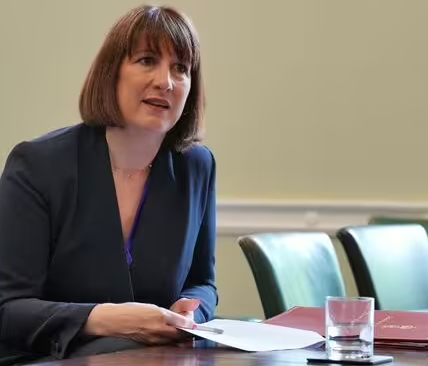Exclusive: Paediatricians warn of ‘life-long consequences’ after ‘shocking’ findings of their professional body

Children across the UK are suffering serious damage to their health – including chronic pain, asthma flare-ups, weight loss and developmental problems – because of long delays for NHS care.
Some under-18s are finding it so hard to obtain prompt treatment for their diabetes or epilepsy that they are forced to turn to A&E for care because their health has deteriorated so badly.
Children’s doctors said the findings were “shocking” and warned that some children would endure “lifelong consequences” as a result of delays that could sometimes last several years.
The details have emerged in a dossier of evidence the Royal College of Paediatrics and Child Health (RCPCH) has collated illustrating the harm that treatment unavailability causes.
One paediatrician specialising in neurodevelopmental problems said children who joined the list had to wait six years for their first appointment because the service was unable to meet demand. Another said the average waiting time for an initial consultation was three years and five months.
The anxiety and challenges caused by the delays can be so difficult for children and families to deal with that some parents have even split up as a result of that pressure, because they have reached “breaking point”, the college said. In addition, some families are being forced to pay for private care, in order to circumvent NHS waiting lists.
The RCPCH said its survey of 195 paediatricians working in the four home nations showed that NHS officials had to put more resources into under-18s care.

It also found that some children are:
Putting on a lot of weight because of long delays in getting an initial blood test for hypothyroidism and then seeing a specialist in hormone-related conditions before starting treatment.
Spending years in poverty because their family has not been able to claim child disability welfare benefits while they wait for a paediatrician to diagnose their conditions.
Suffering huge emotional damage because of the anxiety waiting for appointments, tests and treatment for what can feel like a significant portion of their life.
Dr Ronny Cheung, the college’s officer for health services, said: “My paediatric colleagues have provided a shocking snapshot of the state of child health services today. While these results are not a surprise to me as a consultant paediatrician, they are still a sobering read.
“The impacts of long waits are as devastating as they are far-reaching: children and their families denied child disability payments until seen by a paediatrician; mild symptoms progressing into much more complicated conditions and a reduced quality of life, school exclusions and wider family stress.
“These are impacts that will have lifelong consequences and, tragically, are repeated hundreds of thousands of times across the UK.”
Some children with spinal deformities end up with heart and breathing problems because they have to wait so long to have surgery, or the operation becomes riskier, Cheung added.
He highlighted delays young children with swallowing problems could face when seeking access to speech and language therapy to help them eat normally. Those waits, and a lack of regular follow-up appointments because a service was busy, “may mean a child has to be fed enterally – through a feeding tube into their gut – rather than developing the swallowing skills needed to eat normally”, Cheung said.
The physical and mental effects of care not being received for prolonged periods can also lead to children missing a lot of school or, in some cases, not being able to attend at all. That can in turn mean they suffer a loss of time with friends, social isolation and anxiety, Cheung added.
He cited the case of a child whose health visitors referred them to paediatric services at the age of two because the infant had developmental delays. However, the child was not seen until they had started school three years later, aged five.
“As a result the crucial window for developmental intervention had been missed. Because there was a three-year delay in accessing a diagnosis, which was a genetic condition, a younger sibling had since been born with the same condition, as there were missed opportunities for antenatal counselling”, Cheung said.
The Department of Health and Social Care have been approached for response.


